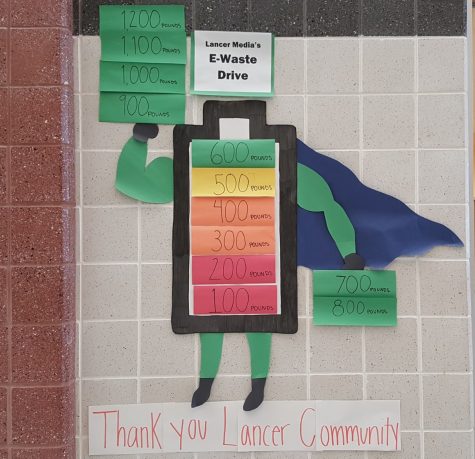Changing to gender neutral pronouns signifies respect
Jack Adams, Avalon Gravley, and Beau Cameron show off their “Ask me about my pronouns” buttons.
September 20, 2016
When referring to a male, you use he/him pronouns. You refer to females by she/her pronouns. So what do you call someone with no gender?
Depending on who you ask, the answer varies. The English language has no gender-neutral singular pronoun to refer to individuals who identify as non-binary (not exclusively masculine or feminine.) People have invented new pronouns such as ‘ze/zir,’ but their use has only spread to select communities.
I believe it doesn’t matter what pronouns people wish to be called. What matters is that our society, and that we, as individuals, respect those chosen pronouns.
Some colleges, such as the University of Tennessee-Knoxville, have adopted informal policies to promote gender inclusiveness. Champlain College asked this year’s incoming freshman class to wear buttons to establish their preferred gender pronouns: She, He, or They.
Many are moving for ‘they/them’ to be adopted as the new singular neutral pronoun, and rightfully so. Mignon Fogarty, better known by her online persona Grammar Girl, states her firm belief that singular ‘they’ will be adopted. Its use as a neutral pronoun has already begun to spread.
In 2015, The American Dialect Society awarded singular ‘they’ Word of the Year. That same year, The Washington Post allowed singular ‘they’ into its style guide. Google defines ‘they’ as “used to refer to someone of unspecified sex.”
The Merriam Webster dictionary has not changed its definition. Traditionalists find the transition to the use of singular ‘they’ difficult. However, the current generation seems to have taken the transition to singular ‘they’ in stride. As the LGBTQA+ community has become an active and visible part of society, awareness has spread. People have begun to understand the more complex aspects of gender identity and accept them.
For the use of the singular ‘they’ to spread to all generations, the rules of language and people’s habits would have to change. Inclusiveness and acceptance should be taught to children from a young age so that they know how to properly address non-binary individuals and can understand the people around them.
Hugh Cameron, father of a non-binary student at Linganore, said, “On occasion I have trouble using they/them pronouns, because I learned grammar a certain way, and it’s instinctive to use the pronouns I was taught to use as a child. It’s new to me.”
Does it matter?
To someone who uses ‘they/them’ pronouns, I can assure you, it does.
Until the 1960’s, inclusive terms for non-binary individuals were not available, thus those individuals were rarely acknowledged. Today, we think differently. Gender is not strictly boy or girl. It is a spectrum with male on one side and female on the other. Some people fall directly in the middle of the spectrum, while others fall closer to one end than the other.
Not all people are strictly one gender. Therefore, they shouldn’t be restricted to a pronoun that ties them to a single gender.
Gay Straight Alliance adviser Jessica Baker said, “I don’t use they/them pronouns, but I should. There are a lot of students who are transgender or non-binary and haven’t officially decided on a pronoun or don’t want to be called he or she.”
Baker said, “Having a correct pronoun is a symbol of what you are presenting to society. When someone calls you by the inappropriate pronouns, it makes you feel like you’re not a person, as if who you are and what you feel isn’t valid.”
When someone who you’ve known for a long time transitions between genders, it makes sense that you would have trouble using their correct pronoun. You’ve known them as ‘he’ or ‘she’ for years; it’s not easy to change that mindset.
In that sense, it’s okay to mess up. It’s also okay to correct people when they use the incorrect pronouns when referring to you or someone else. However, it is not okay to blatantly use the wrong pronouns.
“When someone gets my pronouns wrong, I usually just correct them and hope they don’t ask any questions,” said Linganore Class of 2019 student and trans male Spencer Derrenberger. “If they do, I just explain that I go by male pronouns and to please respect that.”
That’s all it’s really about–respect. Respect for people’s gender identities, respect for people’s pronouns, respect for people. That’s all it takes to end the pronoun argument.
Cameron advises other parents of non-binary children to “Have patience. Approach things with an open mind and don’t overreact.”
Using correct pronouns seems arbitrary, something that can easily be ignored. But to someone who has been called by the incorrect pronouns their entire life, pronouns are important.
“There is a connotation with the feminine/masculine pronouns that my child is bothered by,” said Cameron. “Since using the pronouns that they prefer is meaningful to them, it’s meaningful to me.”
Next time you aren’t sure of someone’s gender, don’t assume anything. Ask them. A small courtesy like that can go a long way.












